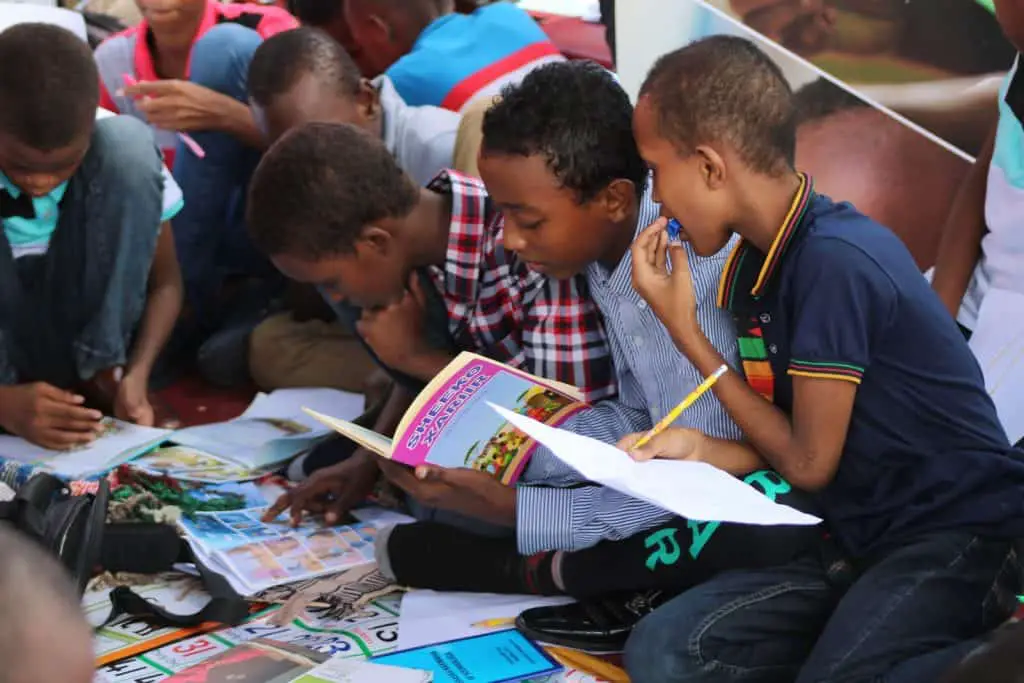As parents, we want our children to have the best start in life possible for a great future. We want them to be happy and healthy, and to grow up in an environment that is supportive and nurturing. We want them to around with caring teachers, kind children and supportive families.
One of the best ways to ensure this is to create a positive environment for your child’s first year. Here are some tips on how to do just that.
1. Spend time with your child each day. Whether it is reading a book, playing a game, or taking a walk together, spending quality time with your child on a regular basis can help foster positive relationships and build healthy emotional bonds.
2. Talk to your child often about his or her feelings and emotions. Children may not always have the words to express how they are feeling, but you can help them by putting their feelings into words for them. Try asking questions like, “How do you feel when we play together?”, or “What was your favorite part of playing outside?”
3. Be sure to spend time doing fun activities with your child. This can help them to build strong memories and form positive associations with their surroundings. It also gives them a chance to learn social skills, such as how to share and take turns.
4. Make sure that your child has quality time with both you and your partner. Children need the love and support of both parents in order to thrive, so it is important to try and spend time with them as a couple, as well as on your own with your child.
5. Encourage your child to be active and explore the world around him or her. This can help foster creativity and independence in your child, while also providing opportunities for you both to bond over shared activities.
Aside from that this will help them stay away from social media like Facebook. You can visit museum for education.
6. Encourage your child to follow her passion. If she loves animals, help her learn more about them. If he loves music, help him find ways to express himself through song or dance. By supporting your child’s interests, you can help him or her develop a lifelong love of learning.
7. Teach your child to be active in the community. This means encouraging him to help out around the house, engaging in service projects as a family, or getting involved in local community events. By giving your child a sense of purpose and helping him connect with others, you can help make his life richer and more fulfilling.

8. Build a support network for yourself and your child. This can include close friends, family members, or even a professional caregiver. Having people to rely on can help reduce stress and make parenting more enjoyable.
9. Build trust by being honest with your child. This means telling the truth even when it is difficult, and helping him to understand that mistakes are a normal part of life. As he grows older, your relationship will be stronger as a result.
10. Proper encouragement can help your child succeed in life. This means praising positive actions, and helping your child to set attainable goals. It also means offering assistance without doing things for your child that he or she can do on their own. By supporting your child’s independence and development, you can help him become the best person he can be.
11. Be affectionate with your child. This means hugging, kissing, or simply holding hands on a regular basis. Physical touch is an important way to build connections and support your child’s emotional health and well-being.
12. Remember that consistency is essential in parenting. Routines can help children feel more comfortable and secure, so try to be as consistent as possible in your parenting style. This means setting clear rules and expectations, and following through with them on a regular basis.
13. Be flexible in your parenting style. Just as children grow and change over time, so too do parents’ needs and preferences. As your child grows older, you may find that you need to adjust your parenting style to meet his or her changing needs.
14. Don’t be afraid to seek help from a professional caregiver if you feel overwhelmed or stressed out. Raising a child can be difficult, and it is perfectly normal to need additional support at times. A therapist or counselor can offer guidance during challenging times and help you manage the stresses of parenting more effectively.
15. Help them build positive mindset by exposing your children to positive role models. This can be anyone from a favorite author, teacher, or even an admired celebrity. Seeing others who have achieved success can help instill a belief that your child can do the same as he grows older.
16. Model the behavior you want to see from your child. This means being respectful to others, treating others with kindness and compassion, and generally being a positive force in the world. By setting a good example for your child to follow, you can help instill important values that will guide him as he grows older.
17. Love them unconditionally. No matter what mistakes your child makes, always remember that you love him or her unconditionally. This can be a difficult concept for children to understand, but it is an important one nonetheless. By showing your child that you will always love him or her, you can help build a strong foundation of trust and respect.
18. Finally, don’t forget to have fun! Parenting can be a challenging and rewarding experience, but it should also be enjoyable. Make sure to take time for yourself and enjoy your child’s company. By doing so, you can create lasting memories that will be cherished for years to come.

